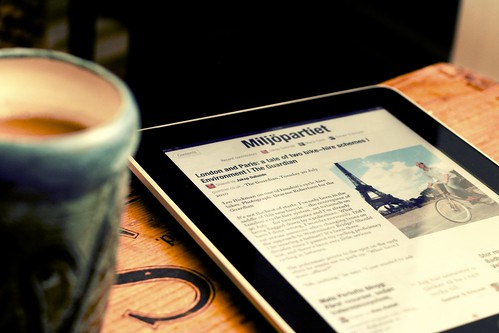The PhD with whom I share an office wall at RJI just published a cool study on how readers react when they stumble across news. In it, she makes a number of really interesting points about serendipity and the news. And before I go any further, I want to say this: Many of the points the study makes seem to be universally true. Points like:
-People like checking the Internet for news when they get bored at work.
-People feel guilty when they waste time reading news on the Internet.
-People read news because they want to be well informed.
But the real meat of the research looks at how readers respond when they stumble upon news. I was excited about this. A real look at how certain mediums — print, or social media, or smartphones — affect the way readers experience a story? Yeah, I’m interested!
Then I read the fine print, and it bums me out. The research is based on interviews with readers in Columbia, MO… in April and May of 2009.
Remember how people consumed news 33 months ago? Facebook and Twitter were wildly different[1. Actual sentence I just dug up from a social media site in July 2009: “We’ve all heard the predictions and discussions from those in the blogosphere around MySpace. However, whether or not you believe that Facebook is going to overthrow MySpace, and Twitter is going to rule over all isn’t really important.”]. There were no tablets. The iPhone and the App Store were less than a year old.
It’s strange to read a story about modern news serendipity and see more mentions of Yahoo.com’s homepage (4) than Facebook (0), smartphones (0) or tablets (0) combined.[2. And this research took place long before Yahoo! really got into serious news reporting, too.]
I’m not saying the study is worthless. I’m not saying the study is wrong. In fact, just the opposite: A lot of the points made in the study seem universal and worthy of larger discussion.
My frustration is that the study is based largely on media consumption habits that are three years old, and in Internet time, that’s just a step away from forever. I wish it better reflected how readers consumed news today.

